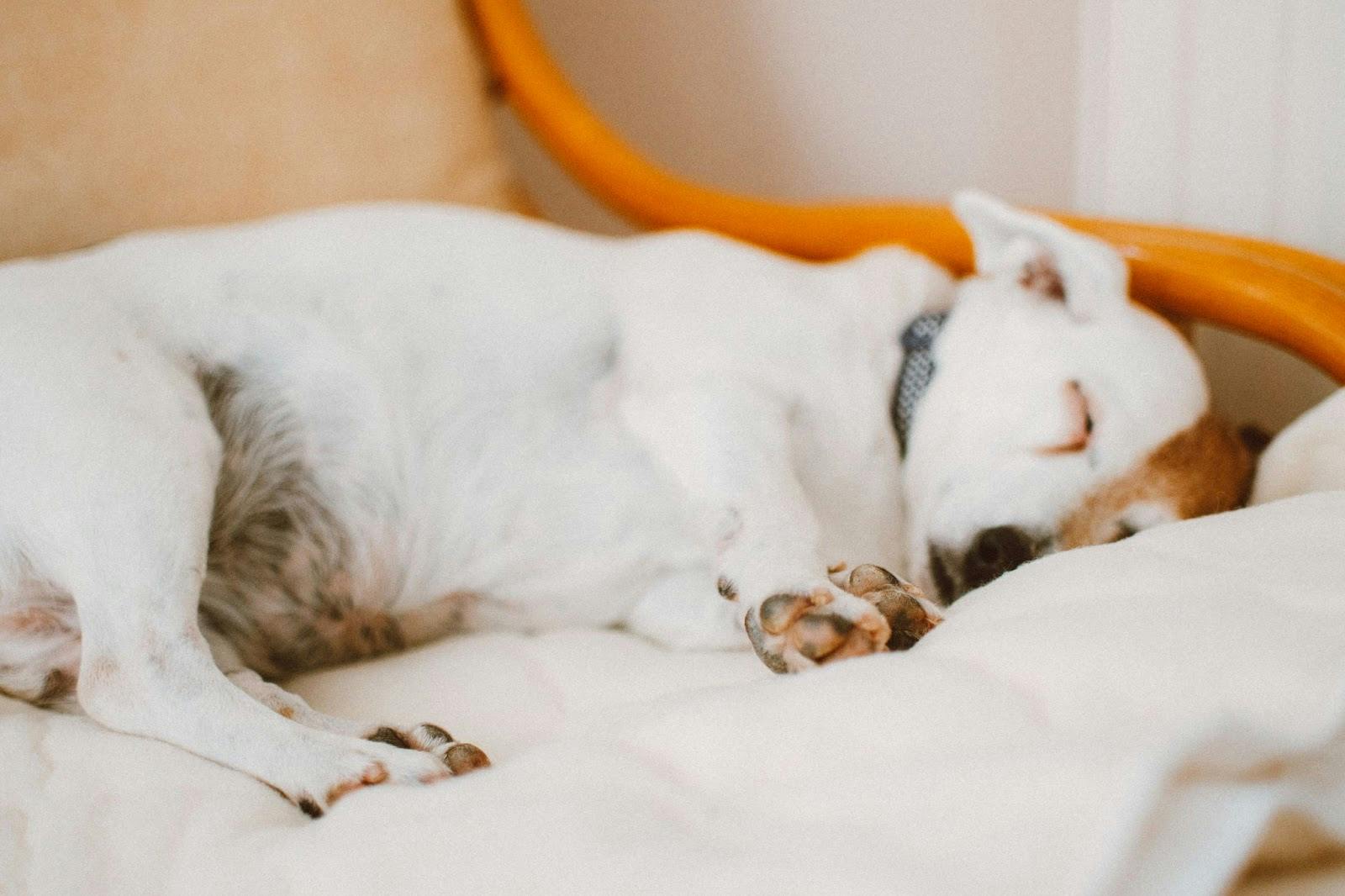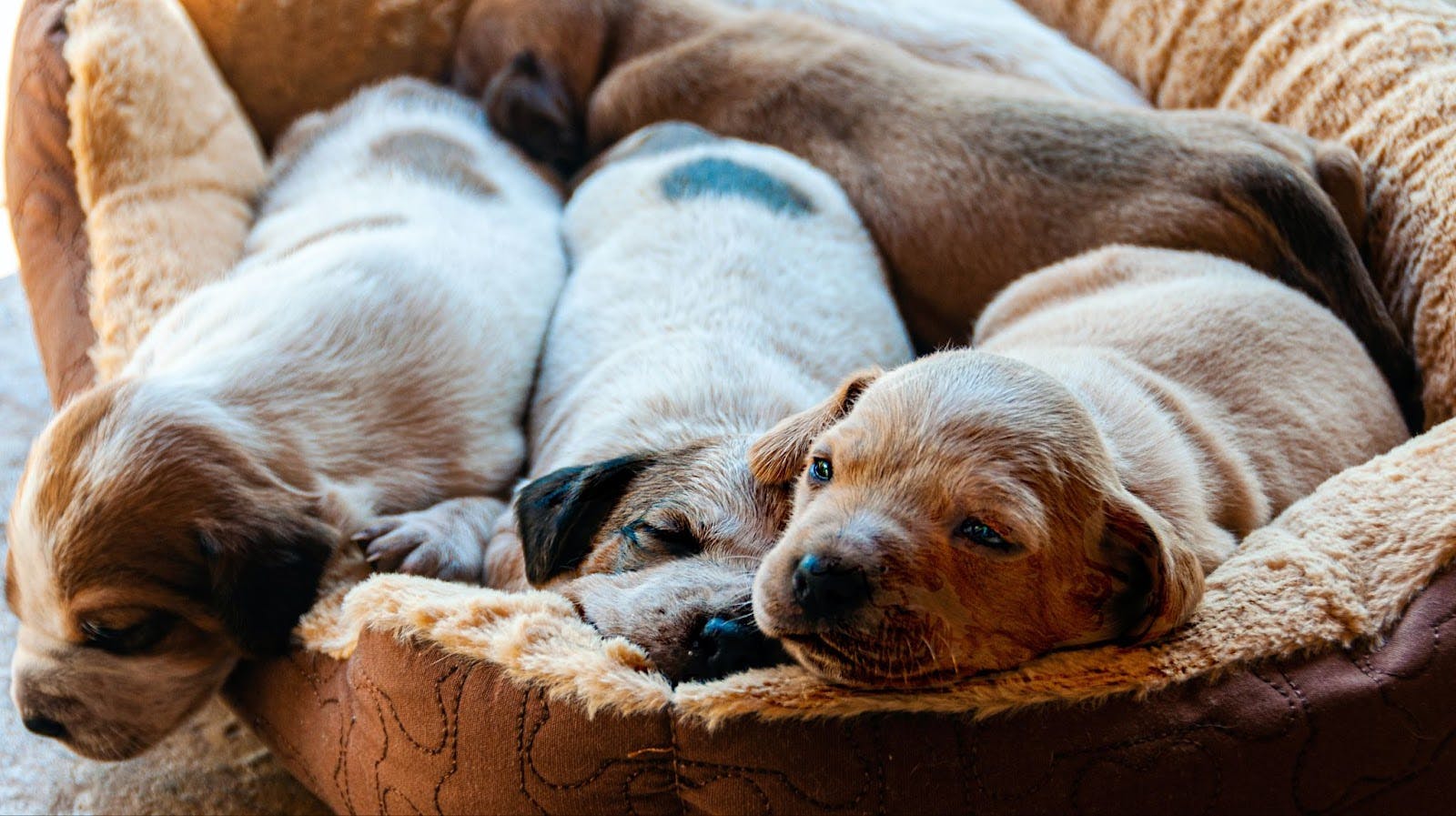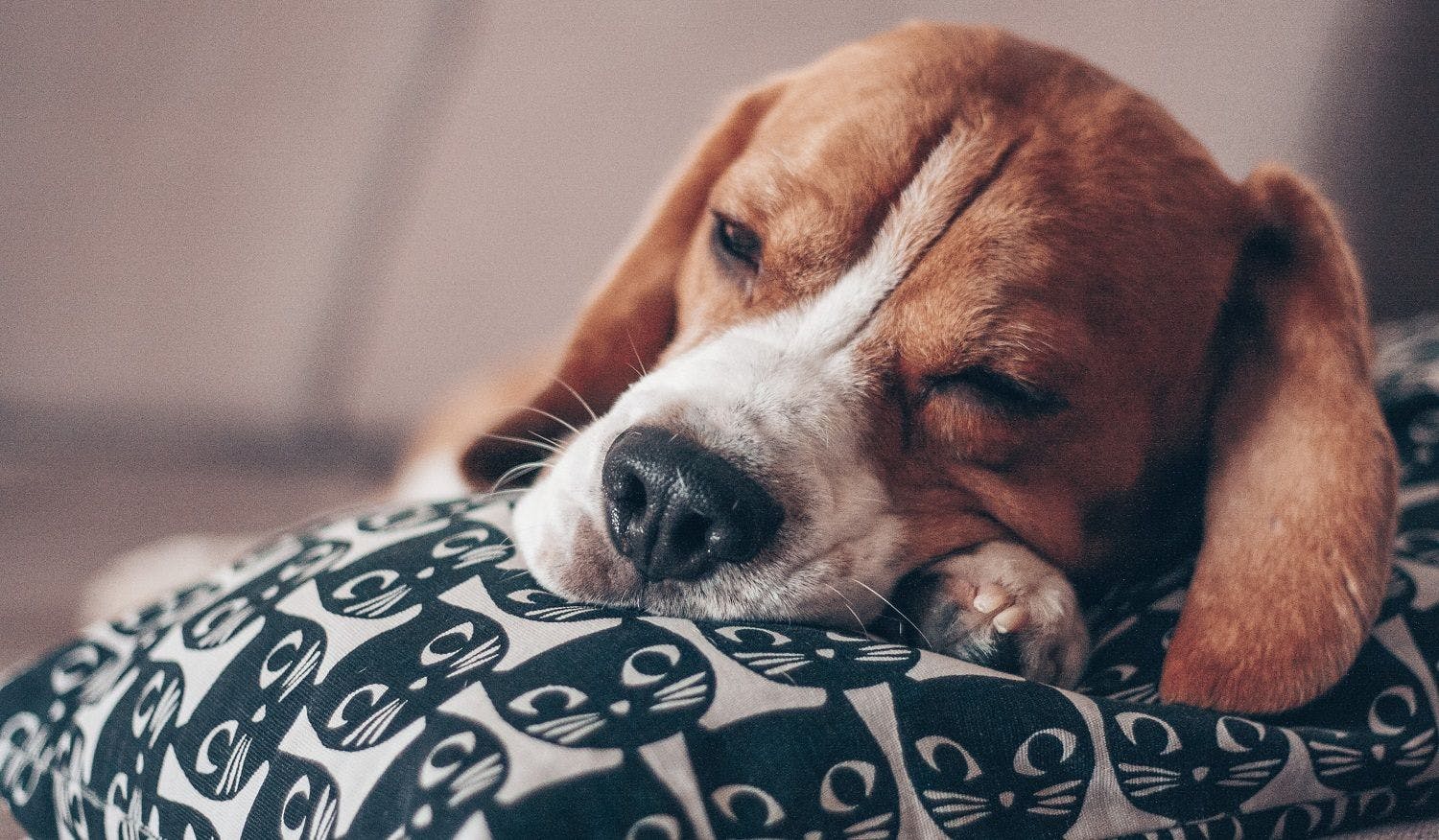Why Do Dogs Sleep So Much?
Dogs, like cats, sleep more than we do, it's a simple reality. You've probably spent a lot of time gushing over how adorable it is when a dog is napping, whether you have a puppy that falls over after playtime or a good ol' boy that sleeps all day.
However, if your dog snoozes the entire day, you might start to wonder why dogs sleep so much. What amount of sleep do dogs actually require? Read on to find out why dogs sleep so much and when you should be concerned about your dog being always very sleepy.

The amount and timing of a pet's naps depends on a variety of circumstances. Here are a few factors and potential responses to the question, "Why does my dog sleep so much?" if you're trying to figure out the cause of your dog's afternoon naps.
Life Stage
When it comes to their sleep requirements, adults, elderly, and puppies all follow different schedules. The demand for additional sleep in young puppies and older dogs is entirely normal.
Puppy sleep is crucial for development and for recharging their batteries after a long day of learning and playing.
Additionally, older dogs will require more sleep than they did in their earlier years. However, it's crucial to pay close attention to how old pets sleep. Although more sleep is to be anticipated, other changes in their sleep cycle, such as waking up in the middle of the night feeling disoriented, can signal health issues like cognitive impairment. If you detect any odd changes in your dog's sleep, we have veterinarians who can help!
Breed
Working dogs who have a task to complete are more likely to be on their four feet than pets who are inactive. Since some dog breeds have lower energy levels than others, it makes sense that they would choose to sleep more during the day. Certain big breeds, like Newfoundlands, and some little dogs, like pugs, have a tendency to desire more sleep.
Health Issues
Sadly, changes in your dog's sleeping patterns can indicate a variety of health issues. Lethargy or exhaustion may indicate a number of diseases, such as kidney failure, diabetes in dogs, or even urinary infections. If you find that your dog is acting unusually weary or exhibiting any other unusual symptoms, chat with a Mavyn.
Absence of a nutritious diet
Unbalanced diets may deprive dogs of several essential nutrients that provide their bodies the energy they need to go through the day. They could find it too difficult to stay awake with their energy reserves drained, preferring instead to spend most of the day in bed.
How long do dogs typically sleep?
Generally speaking, dogs sleep for 12 to 14 hours throughout the day, with puppies sleeping even longer. In fact, it is not uncommon for a puppy to sleep up to 20 hours each day during their first few months of existence. It's crucial to let your pet take advantage of their leisure because sleep helps the body rejuvenate and restore itself.

When to be concerned if your dog sleeps too much
Your dog might sleep too much, especially if his routines alter. It may be a sign that anything is amiss if you notice that he is suddenly sleeping for the majority of the day. He may not be feeling well if it takes him longer than usual to get out of a slumber.
Sleeping more hours could be a sign of several health issues, such as:
- Depression or cognitive impairment
- Hypothyroidism
- Loss of hearing
- Heart condition
- Chronic pain, such as arthritis
Takeaways
Sleep is as important for dogs as it is for people, as we just learnt. Sleep is beneficial for brain growth, memory storage, learning, processing emotions, and immune system maintenance. On average, our canine buddies sleep 12 to 14 hours, more per day than we do. All dogs need sleep, but puppies and older dogs require the most, up to 20 hours a day. Numerous variables, including age, breed, activity level, ennui, and even temperature, can be at play. Oversleeping or undersleeping might be symptoms of sickness. You can identify variations in their sleeping habits and spot health risks early on by keeping an eye on their sleep with a GPS dog tracker.
